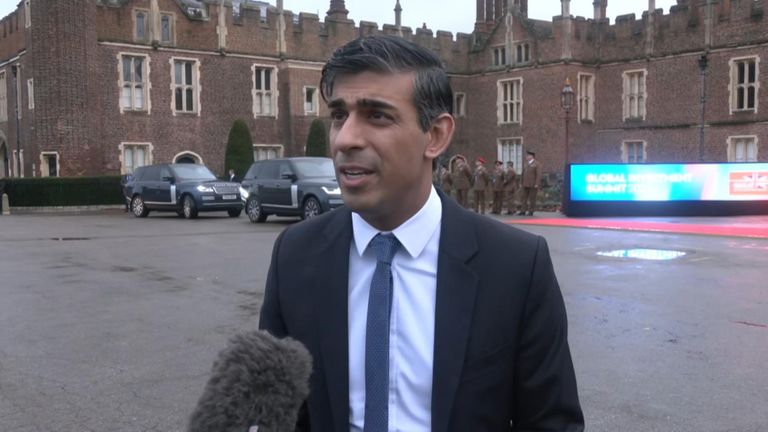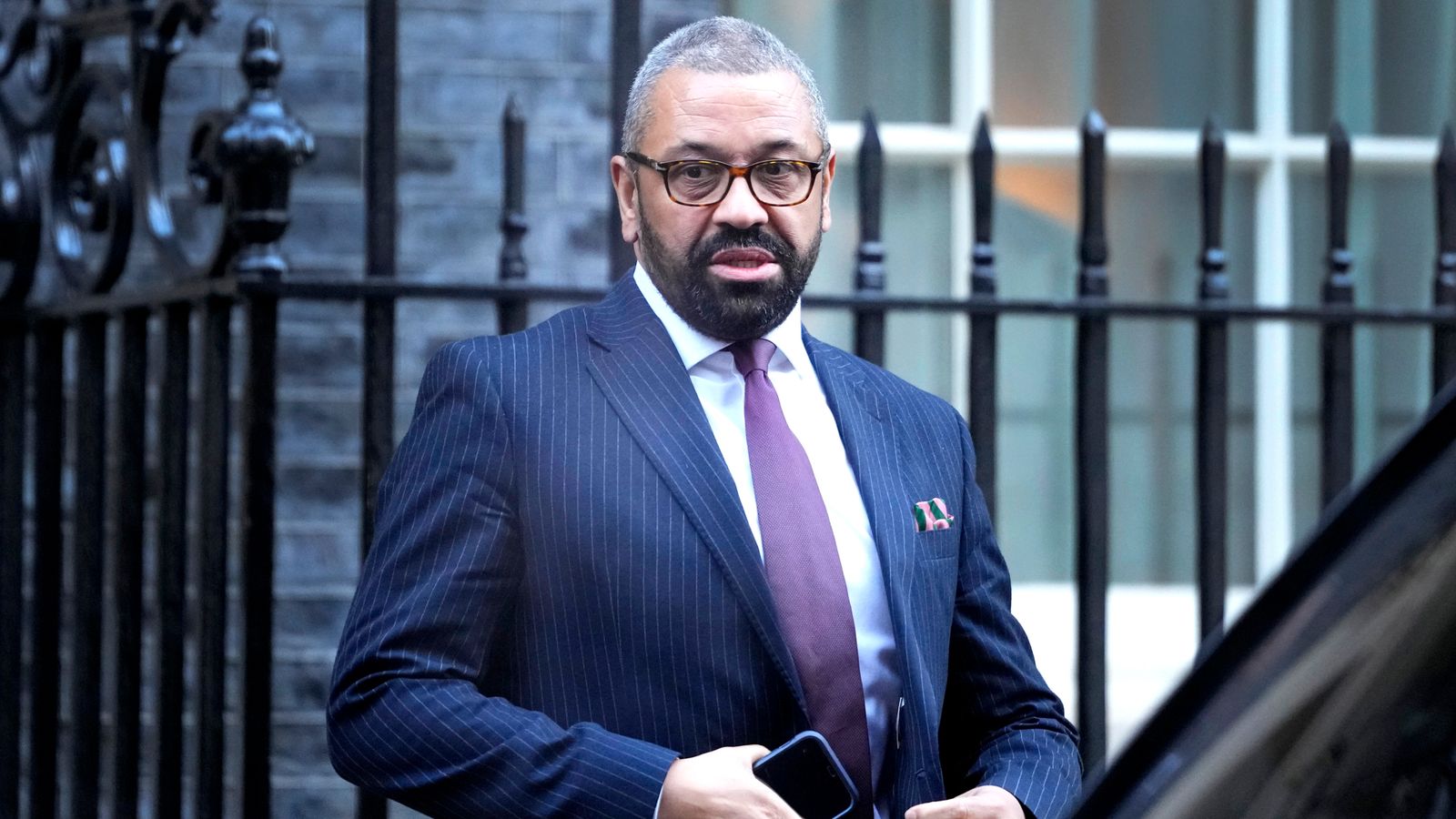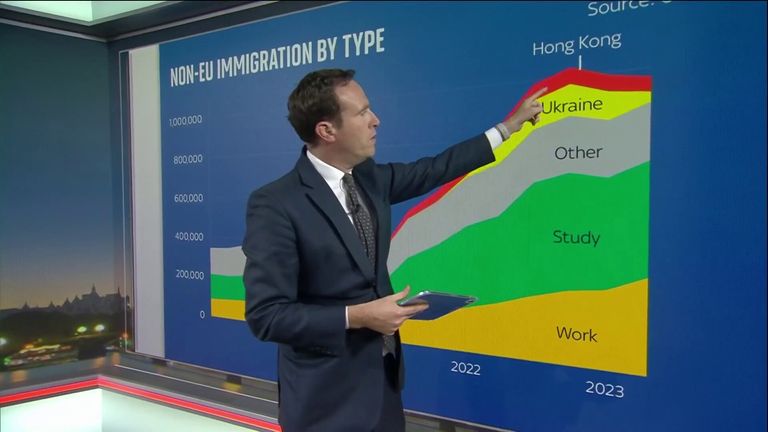
The government will announce a package of measures today aimed at reducing record levels of legal migration.
Home Secretary James Cleverly is expected to tell the Commons on Monday that the minimum salary requirement for a skilled foreign worker will be significantly hiked, from £26,200 to a figure over £35,000.
It is thought Mr Cleverly will also announce the scaling back of health and social care visas and an overhaul of the shortage occupation list – measures Immigration Minister Robert Jenrick had been pushing for.
Politics Live: Starmer won’t ‘turn on the spending taps’
Prime Minister Rishi Sunak faced a backlash from senior members of his own party after new figures revealed migration is at an all-time high – despite a Conservative 2019 manifesto pledge to bring numbers down.
Revised estimates from the ONS put net migration to the UK in the year to December 2022 at a record-breaking 745,000.
The prime minister said the figures are “too high” and vowed to “do what is necessary” to bring them down.
It is understood he came under pressure in particular from Mr Jenrick, who proposed a five-point plan involving a cap on the number of health and social care visas and a rise in the minimum salary threshold.
Home Office figures showed 143,990 health and care worker visas were granted in the year ending September 2023, more than double the 61,274 for the year to September 2022.
But any measures to limit these visas would likely prove controversial, given the workforce crisis and the growing NHS waiting list.
As well as scaling back these visas, the government could also limit the number of dependants foreign health and social workers could bring to the UK.
According to The Telegraph, which first reported on today’s announcement, there will also be an overhaul of the shortage occupation list – a programme that allows foreign workers to be paid 20% below the going rate in roles that suffer from a shortage of skilled workers.
Sources told the newspaper the list would be “widely scrubbed” with a high bar set for any exceptions.
Cleverly seeks to finalise Rwanda deal
The statement comes as Mr Cleverly also seeks to finalise a new treaty with Rwanda to salvage the deportation scheme, which has been ruled unlawful by the Supreme Court.
Reports on Monday suggested British lawyers could be sent to courts in Kigali as part of a new treaty aimed at addressing the judges’ concerns so flights can finally take off.
The policy, first announced in April 2022, would see people who arrive on small boats crossing the Channel sent to Rwanda to claim asylum there, not the UK.
But the UK’s highest court expressed concern that once in Rwanda, some people could be sent back to the country of origin from which they were fleeing – something which is against international law.
Mr Cleverly is understood to be close to finalising a new treaty aimed at making the plan legally watertight and could head to the African nation as soon as this week to sign it.
Domestic legislation is also planned so if a deal is reached, the UK Parliament could assert Rwanda is a safe destination for asylum seekers who arrive in Britain.
Read more:
What is the Rwanda plan and what will happen next?
Businesses forced to rely on foreign workers
Channel crossings second highest on record
The scheme is seen as crucial to Mr Sunak’s vow to “stop the boats” – one of the five pledges he made shortly after becoming prime minister.
Figures published today show the number of people crossing the English Channel in small boats this year has now passed the level in 2021 – meaning the total arrivals in 2023 will be the second highest on record.
As of 2 December, Home Office figures show 28,972 migrants were detected crossing the channel, compared with 28,395 during the whole of 2021.
However, the current number for 2023 is 34% down on 2022, when a record 45,728 crossings were recorded.













